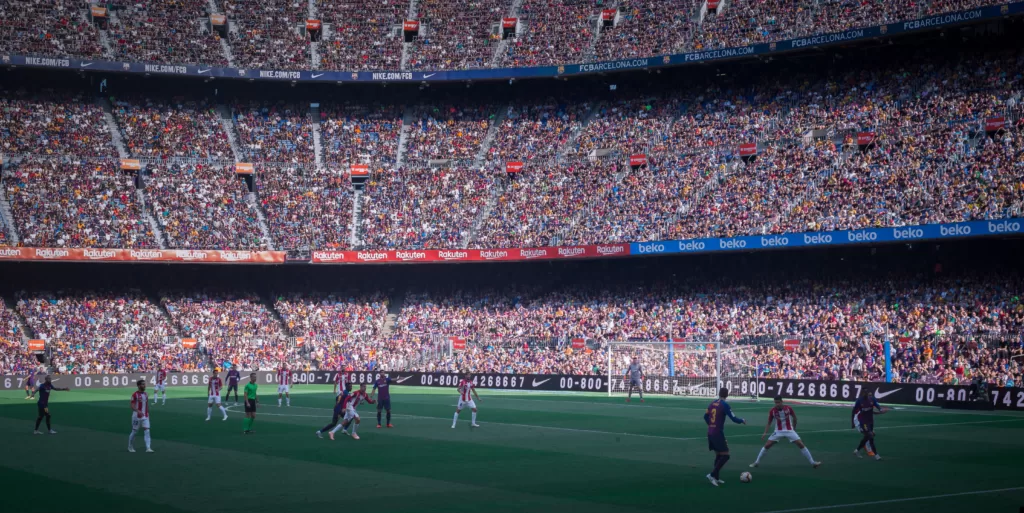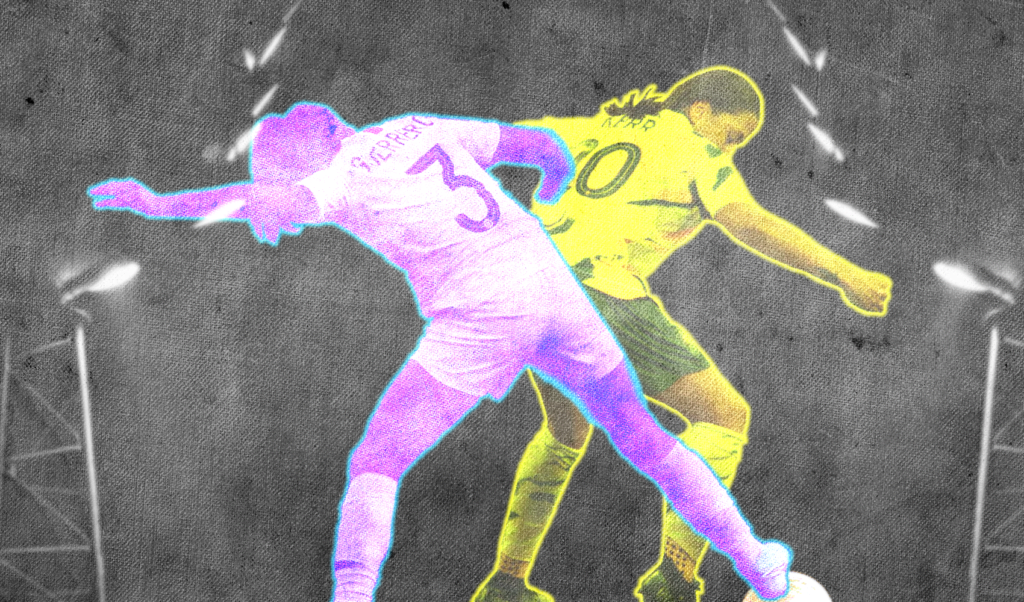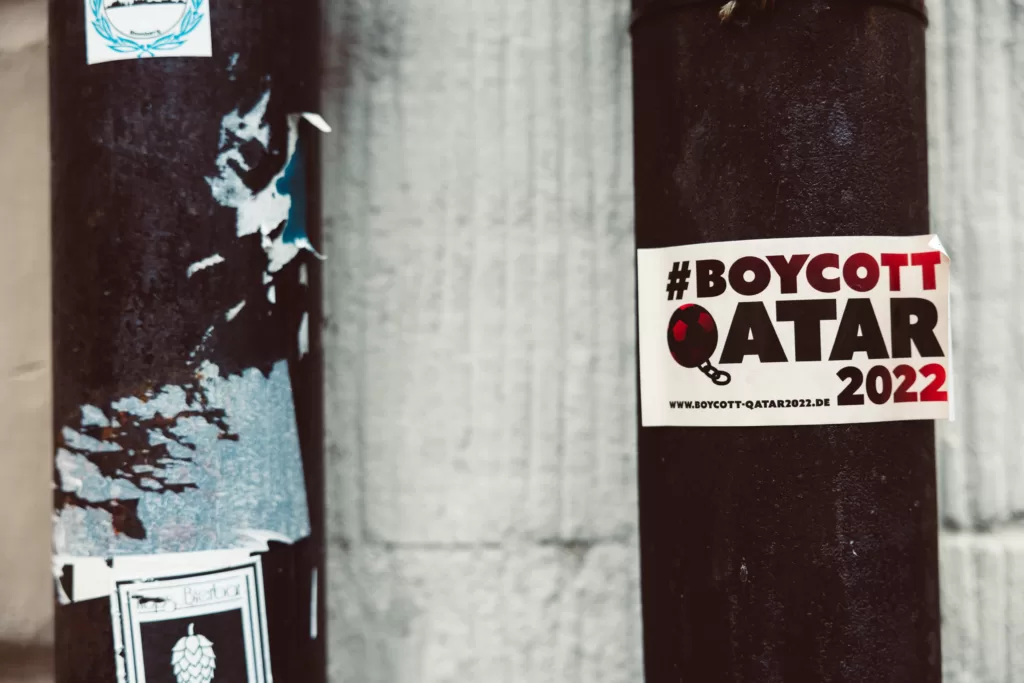Fans care about their clubs' accomplishments more and if new owners can pour in big money to achieve this, then all is good.
 Football fans may have opinions about sportswashing but their voices are unlikely to be heard. : ‘Soccer field’ by Michael Lee is available at https://tinyurl.com/5n6ar3ma Copyright License: Unsplash
Football fans may have opinions about sportswashing but their voices are unlikely to be heard. : ‘Soccer field’ by Michael Lee is available at https://tinyurl.com/5n6ar3ma Copyright License: Unsplash
Fans care about their clubs’ accomplishments more and if new owners can pour in big money to achieve this, then all is good.
When new owners take over a football club, fan excitement grows. An influx of new money, new management, new ideas and new players bring the promise of new success.
Roman Abramovich achieved this when he took over perennial English Premier League underachievers Chelsea in 2003. Over the next 19 years, the Russian oligarch’s money helped bring in the talent that won the London club 18 trophies.
In recent years, investors from the Middle East have taken ownership of some of Europe’s biggest football clubs. Owners from Saudi Arabia, Qatar and the United Arab Emirates have poured millions of dollars into these clubs and achieved success.
There is a theory these investors are throwing large amounts at clubs to assist in sportswashing, a practice designed to deflect attention from poor behaviour. One side effect is the idea supporters become less important to these investors.
At the time of writing Manchester United seems set to be sold to a Qatari banker Sheikh Jassim for around £5 billion while Newcastle United was purchased in October 2021 by a Saudi consortium. In 2008, the Abu Dhabi United Group purchased Manchester City.
Deloitte identifies Manchester City as the richest club with Newcastle United sitting at number 20. Also in the top 10 is French club Paris St-Germain (in sixth place) just below Manchester United, widely touted as the game’s most famous club.
The Qatar Sports Investment organisation, a sovereign wealth fund, has owned Paris St-Germain since 2011, Qatar also being the venue for the 2022 World Cup late last year.
This does not exhaust the list of involvement in top-flight football, although it does highlight what might be achieved in terms of success.
Although such investments can be relied upon to deliver attractive income streams, the sums involved would seem relatively insignificant in relation to the wealth of those involved.
A more feasible explanation relates to pursuit of long-term capital growth – again the sums involved appear to lack significance.
A third explanation is that investing in football clubs opens the door to a much wider and more lucrative investment portfolio which also brings the possibility of reinforcing the investors’ acceptability to local communities, including supporters. In addition, it is asserted that many in the region’s population are enthralled by the world’s game.
In recent years a different explanation of the motivations of Arab investors in top-flight football, alongside many other popular sports, has been advanced – the pursuit of ‘sportswashing’.
Combining the terms sports and washing, sportswashing identifies practices designed to create a favourable public impression at odds with what is widely regarded as unacceptable behaviours by people and governments in other parts of the world.
Why these new investors are attracted to big clubs is clear cut: it isn’t about wealth streams or long-term capital growth – football clubs are notoriously expensive to run – but about the soft power football can bring.
The enduring commitment of football supporters to their clubs may fast be becoming unimportant for those contemplating engaging in further sportswashing-based investments in the upper echelons of the game.
The traditional supporter may be enthused by the prospect of new money being invested in their club but most understand that they are unlikely to be the beneficiaries of multimillion-pound investments. They also recognise that money cannot guarantee the levels of success previously enjoyed by the few.
Being a supporter means staying loyal to your club, attending every match, being prepared to travel long distances to desolate stadia to cheer on their club and to safeguard the legacy they remain custodians of and who take pride in any accomplishments delivered.
While it might be imagined that supporter communities are likely to be the most exercised by sportswashing, unfortunately, their voices are unlikely to be widely heard.
Electing not to renew your season ticket, assuming you haven’t already for financial reasons, is futile.
In the modern game successful clubs usually have waiting lists of fans, whose commitment to clubs is more tenuous, seeking season tickets and ready to pay the asking price.
For those less able or interested in attending every game, clubs have created the matchday package concept, facilitating participation in the spectacle as required.
This can be regarded as a further stage of the gentrification of the English game, which began in the 1980s with a government-supported initiative to expel the ‘English disease’ of hooliganism from the game. Or perhaps its traditional working-class provenance constituted the real target?
In the case of top-flight football, sportswashing entails ‘washing’ (or laundering) unacceptable behaviours in the glamour associated with the world’s most popular game.
The behaviours in question are principally those designated human rights abuses, which are known to continue within nation-states, including those associated with recent investment in top-flight football.
Sportswashing is not designed to deny nor conceal the continuation of these abuses.
In the 21st century, this is not possible. Instead sportswashing can be understood as the process of diverting or deflecting attention away from abuses, thereby facilitating their perpetuation.
In this regard the 2022 World Cup proved a great success with most people acknowledging Qatar’s capacity to stage the event, the absence of trouble at matches and beyond and the evidence of a sincere interest in the sport in the region.
This coupled with the realisation that Qatar may indeed be a great place to live, work and possibly holiday. Qatar’s project is a textbook exercise in deploying soft power to persuade rather than coerce while embedding its preferred agenda in the mindset of the outside world.
Professor Robin Roslender is a faculty member at Aalborg University Business School in the Faculty of Social Sciences and Humanities, Aalborg, Denmark. He declares no conflict of interest.
Originally published under Creative Commons by 360info™.











